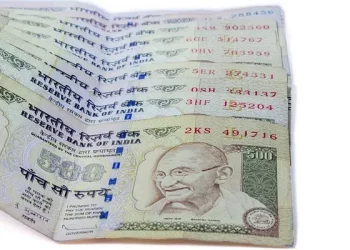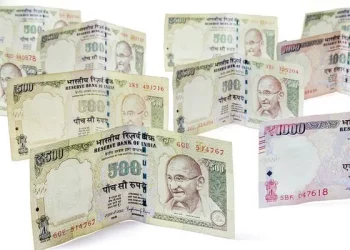In the complex landscape of global finance, the value of currency can shape economies and influence the behavior of traders, investors, and consumers alike. The Japanese yen (JPY), one of the world’s most traded currencies, serves as a key player in international markets. This article will analyze the implications of holding 1000 yen, particularly in the context of trade and investment, and assess its significance within both domestic and global economies.
Understanding the Value of 1000 Yen
To determine whether 1000 yen is a lot of money, we must first contextualize it within Japan’s economic framework. As of 2023, the exchange rate has fluctuated, with 1 USD generally hovering around 100-150 JPY. Thus, 1000 yen translates roughly to about $6-10 USD, depending on the current exchange rate.
However, this nominal value does not fully capture the purchasing power of 1000 yen within Japan. In 2023, this amount can cover basic daily expenses such as:
Food: A meal at a budget restaurant can range from 500 to 1000 yen.
Transportation: A one-way ticket on public transit typically costs between 200 and 500 yen.
Utilities: Basic utilities might run around 10,000 yen monthly, meaning 1000 yen covers only a small fraction.
In summary, while 1000 yen can purchase certain goods and services, its utility is limited, and its value can vary significantly based on the individual’s economic situation and spending habits.
The Yen’s Role in International Trade
The yen is a crucial currency in global trade, particularly in the Asia-Pacific region. Japan is one of the largest economies globally and a major exporter of technology, automobiles, and machinery. The currency’s value impacts export prices and can influence the competitiveness of Japanese goods abroad.
Exchange Rate Fluctuations:
When the yen appreciates against other currencies, Japanese products become more expensive for foreign buyers. This can reduce exports, affecting production and employment in export-driven sectors.
Conversely, a depreciating yen can make Japanese goods cheaper and more attractive internationally, boosting exports and potentially leading to increased economic growth.
Trade Balance:
A strong yen can lead to a trade deficit if imports exceed exports. Japan’s trade balance is crucial for its economic health. A persistent deficit can weaken domestic industries, leading to job losses and economic contraction.
A balanced trade environment encourages foreign investment, which is vital for Japan’s long-term economic stability.
Impact on Tourism:
A strong yen can deter foreign tourists, as traveling to Japan becomes more expensive. Conversely, a weaker yen can attract tourists, benefiting the service and hospitality sectors.
Investment Implications of 1000 Yen
Investment decisions are influenced by currency strength, exchange rates, and the overall economic climate. For investors, understanding the implications of holding 1000 yen can provide insights into market behavior and opportunities.
Domestic Investments:
With 1000 yen, an individual cannot make significant investments directly. However, it can be a starting point for savings, which can accumulate over time. In Japan, interest rates have been historically low, prompting investors to seek alternatives such as real estate, stocks, or bonds.
As an investor, leveraging small amounts can involve contributing to mutual funds or ETFs that focus on the Japanese market, allowing diversification even with limited capital.
Foreign Investments:
Investors seeking opportunities outside Japan may consider the exchange rate when converting yen into foreign currencies. The strength of the yen can enhance or diminish potential returns when investing abroad.
Additionally, foreign investments can provide a hedge against domestic economic fluctuations. For instance, investing in U.S. assets may be appealing if the yen is weak, as it may lead to higher returns when the yen appreciates in the future.
Impact on Foreign Direct Investment (FDI):
The yen’s stability is a critical factor for foreign investors considering FDI in Japan. A stable currency can encourage investment by minimizing risks associated with exchange rate volatility.
Japanese companies often seek to invest abroad, and the availability of capital in yen influences their ability to acquire foreign firms or expand operations globally.
Economic Policy and Currency Management
The Bank of Japan (BOJ) plays a vital role in managing the yen’s value through monetary policy. The central bank‘s decisions can significantly affect the economy’s health and the currency’s role in global markets.
See Also: Current USD Exchange Rate: $1,000 to Yen
Quantitative Easing:
The BOJ has employed extensive quantitative easing (QE) measures to stimulate the economy. While QE can lower interest rates and support economic growth, it also raises concerns about inflation and currency depreciation.
A weaker yen may benefit exporters but can negatively impact consumers through increased import prices, influencing the overall cost of living.
Interest Rates:
Low-interest rates are designed to encourage borrowing and spending. However, prolonged low rates can lead to diminished returns for savers and impact investment behaviors.
For foreign investors, Japan’s low rates may deter investment in yen-denominated assets, leading to capital flight towards markets with higher yields.
Inflation Targets:
The BOJ’s inflation target influences the currency’s value and, subsequently, the purchasing power of 1000 yen. Achieving the target can stabilize the economy but may lead to currency fluctuations that affect trade balances.
Societal Impact of Currency Value
The value of 1000 yen extends beyond economic implications; it also affects societal behaviors and norms. Understanding its role in consumer psychology can shed light on broader economic trends.
Consumer Behavior:
The perception of money affects spending habits. In Japan, a culture of saving is prevalent, and even a small amount like 1000 yen can prompt savings behavior. This cultural inclination impacts domestic consumption patterns and economic growth.
Price sensitivity is also crucial. For many consumers, even small price changes can influence purchasing decisions, impacting businesses’ pricing strategies.
Economic Disparity:
Income inequality can alter perceptions of what constitutes “a lot of money.” For low-income households, 1000 yen may be significant, affecting daily choices and overall quality of life.
Conversely, higher-income individuals may view 1000 yen as trivial, leading to different spending behaviors and investment strategies.
Conclusion
In summary, while 1000 yen may not seem like a substantial amount in isolation, its implications for trade and investment are profound. The yen’s value affects Japan’s economic stability, export competitiveness, and foreign investment attractiveness. Additionally, monetary policy decisions by the Bank of Japan shape the currency’s trajectory, influencing the broader economic landscape.
Ultimately, understanding the multifaceted role of currency in trade and investment allows investors and consumers to navigate the complexities of the Japanese economy more effectively. As global economic dynamics continue to evolve, so too will the significance of currencies like the yen in shaping economic futures.
Related Topics:




























